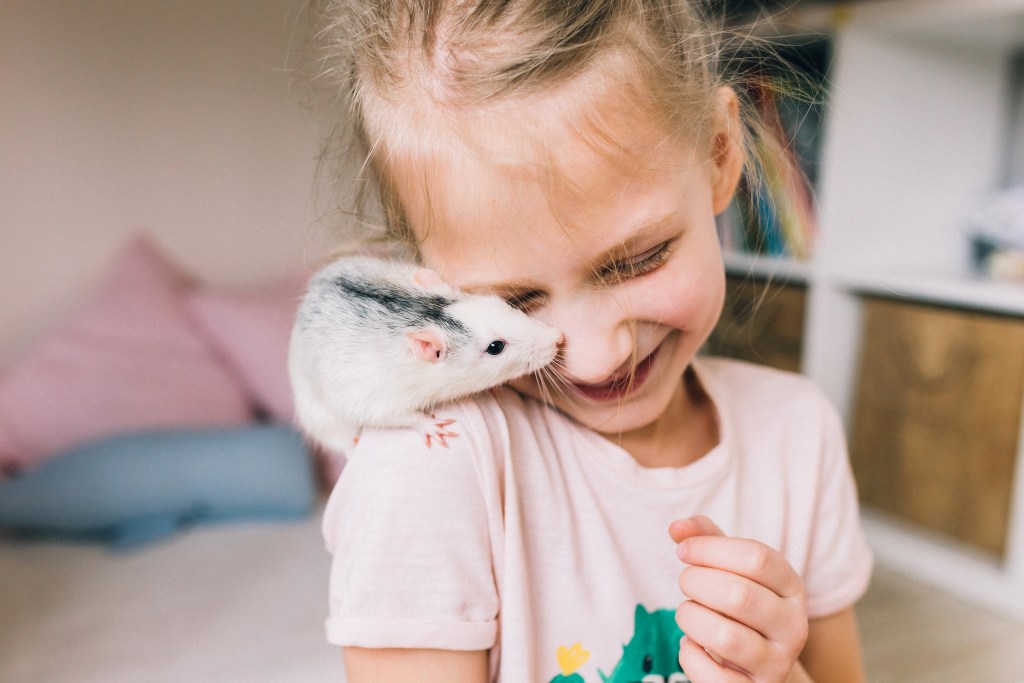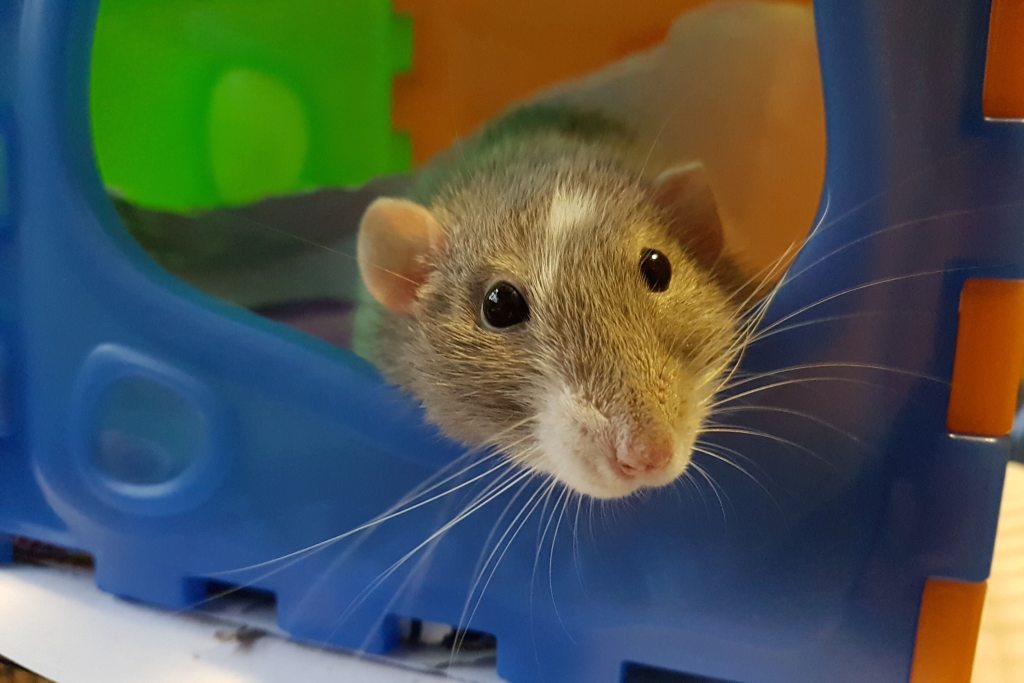Not into the idea of a pet rat? Hear us out. While they might not be at the very top of your must-own list, rats can make fantastic pets for the right person. They have great personalities, learn quickly, and bond to humans. One day you think you would never let vermin in your house, and the next you find your place overflowing with rodent treats. If you’re willing to put aside your preconceived notions for a minute, take a look through these eight reasons to adopt a cute rat into your home.

Are pet rats just like hamsters?
Well, not exactly, but they do have a lot in common. For starters, they both belong to the rodent family and share many traits, especially those big chompers. However, you will discover a few key differences. One thing that might surprise you is that rats are easier to train and can learn some pretty extensive tricks that might elude your hammie.
How long will a rat live?
Like a hamster, a rat will live for about two to three years, but it really depends on how well you take care of the little critter. Of course, that’s assuming you get a Norway rat, since there are lots of other kinds that are sometimes kept as pets.

Is a pet rat the perfect first pet for my child?
Interested yet? You may find that having rats for pets will perfectly fit with your family, particularly if you have a small child. They will quickly learn to love their new precious friend, and the feeling will go both ways. There are plenty of other reasons to take a rat in as well.
Rats come in pairs
Though it might mean an extra mouth to feed, you want your little guy to have someone to play and nest with. In the wild, rats live in huge groups and are very social, so you’ll need to make sure you never keep one alone.
They’re really smart
Part of the reason we think of rats and mazes is that they’re particularly good at critical thinking and solving puzzles. You can use this to teach them a few handy tricks and litterbox train them so you don’t have as much to clean in their cage.
Many enjoy human food
While you certainly shouldn’t overdo it on people treats, rats love fruits and veggies, so feel free to share some treats with your tiny friend. Stick with a balanced diet of pellets, carrots, apples, and other delectable produce, and keep richer fruit to an occasional snack.
You can pet them
You’ll want a pet that was handled from an early age to get the full benefit of holding and petting, but rats love attention from humans. They can even learn to tell you when they want scratches and get picked up.
They like being home alone
Keep in mind that rats are nocturnal. That means they don’t notice or care that you go to work and your kid goes to school. Trust us, they’re sleeping the day away, dreaming of what you might feed them when they wake up for dinner (well, breakfast for the rat).
Rats are clean
It may come as a surprise, but rats like to keep tidy. They will groom themselves and each other, and they’ll also enjoy it when you brush and bathe them. Of course, they can’t quite scrub down the cage themselves, so you’ll still have to handle that job for them.
You won’t break the bank with vet bills
Lots of pets, even small ones, cost a fortune in vet care, multiplied by the many years they inhabit the earth. Rats, on the other hand, won’t rack up huge bills due to their unfortunately short lives. On a cheerier note, they also carry some natural immunities that will help them stay in good shape and keep vet costs down.
They bond to humans
In fact, they may decide you’re part of the rat family and start treating you as one of their own. Be prepared for a few hand licks or even a couple of nibbles that mean they think you’re part of the rat pack.
While certainly not right for every family, rats can become a great addition to many households and add joy and fun to the routine. Many owners compare them to little cats who love to be stroked but don’t require walks and 24/7 attention. Teach them a few tricks and you’ll have a lovable companion to help your kids learn responsibility and compassion.
Editors' Recommendations
- A simple guide to what to feed tadpoles in your aquarium
- What you need to know about sugar gliders before you get an exotic pet
- Bunny care 101: If Easter inspires you to adopt a rabbit, read this first
- How to tell if your guinea pig loves you – some ways may surprise you
- 5 fantastic ways pets in a classroom benefit kids (and the best pets to get)




